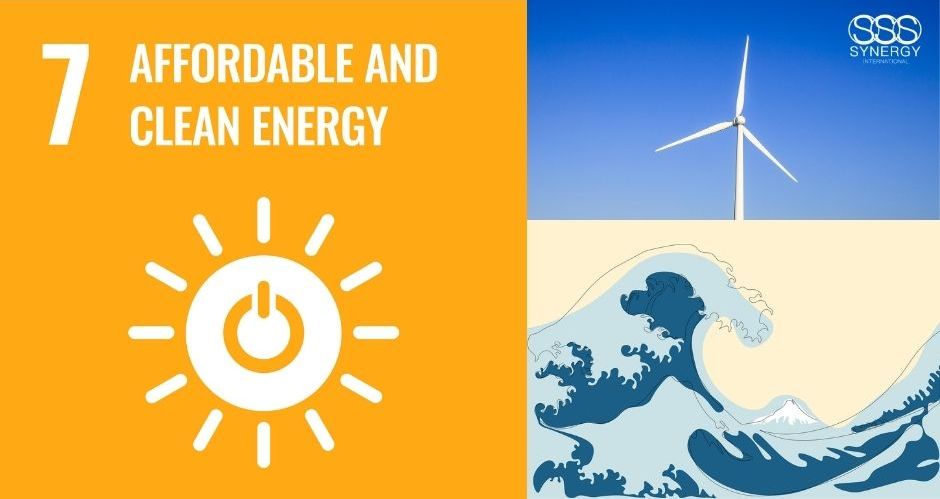Sustainable Energy for All

Sustainable Energy for All - Achieving UN SDG 7
Achieving SDG 7, which aims to ensure access to affordable, reliable, sustainable, and modern energy for all, requires a multi-faceted approach involving policy, technology, investment, and international collaboration. Here are key strategies to realize this goal:
1. Expand Renewable Energy Infrastructure
- Scaling Solar, Wind, and Green Hydrogen: Investing in and deploying large-scale renewable energy systems is critical. Solar, wind, and green hydrogen technologies need to be rapidly scaled up to provide clean energy alternatives, especially in energy-poor regions.
- Decentralized Energy Solutions: Microgrids, solar home systems, and mini-grid systems can bring electricity to rural and remote areas, where centralized grids are costly or impractical.
2. Increase Energy Efficiency
- Energy-efficient technologies must be integrated across sectors like transportation, industry, and buildings. Retrofitting and upgrading existing infrastructure to minimize energy loss is essential to optimize energy use.
- Smart Grids and Energy Storage: These systems can help manage demand and ensure reliable energy supply, improving efficiency while reducing waste.
3. Ensure Financing and Investment
- Mobilize Public and Private Capital: Governments, development banks, and private investors must collaborate to provide the funding needed for renewable energy projects, particularly in developing countries. Green financing initiatives, such as green bonds or climate funds, can drive this investment.
- Targeted Subsidies and Incentives: Offering financial support through subsidies, tax breaks, or grants can lower the costs of clean energy technologies and promote adoption, especially in underserved markets.
4. Strengthen Policy and Regulatory Frameworks
- Supportive Policies: Governments must establish clear and consistent policies that promote renewable energy development. This includes setting ambitious national renewable energy targets, removing fossil fuel subsidies, and implementing carbon pricing (ey.com/en_uk/insights/government-public-sector/six-ways-that-governments-can-drive-the-green-transition).
- Regulatory Reform: Streamlining permitting processes and reducing bureaucratic barriers can accelerate project development. International cooperation is key in aligning policies and regulations to foster cross-border energy trade.
5. Promote Research, Innovation, and Capacity Building
- Investment in R&D: New technologies like advanced batteries, grid integration solutions, and improved green hydrogen production methods must be prioritized. Research should also focus on improving the efficiency and reducing the cost of renewable technologies.
- Technical Training: Building local capacity through education and training programs ensures that communities can manage and maintain new energy systems, creating sustainable job opportunities in the process.
6. Foster International Cooperation
- Global Partnerships: Collaboration between governments, international organizations, and the private sector can unlock shared expertise, technology transfer, and coordinated efforts to scale clean energy globally.
- Addressing Energy Poverty: Special emphasis should be placed on providing affordable energy to developing countries, aligning efforts with initiatives like the UN’s Sustainable Energy for All and the European Union’s REPowerEU program.
By integrating these strategies, the global community can ensure the sustainable energy transition necessary to meet SDG 7 by 2030.
International Treaties Behind SDG 7
SDG 7, Affordable and Clean Energy, Suatainable Energy for All, is built upon a framework of key international treaties that promote access to sustainable and rebwable energy.
The Paris Agreement (2015) plays a central role by setting legally binding targets to reduce carbon emissions and accelerate the transition to renewable energy, which is crucial for achieving SDG 7’s objective of increasing the share of renewable energy globally.
The United Nations Framework Convention on Climate Change (UNFCCC) provides a global platform for coordinating energy-related climate actions, focusing on reducing dependency on fossil fuels.
The International Renewable Energy Agency (IRENA), established under the IRENA Statute (2009), also supports SDG 7 by fostering international cooperation and promoting the adoption of renewable energy technologies.
The Energy Charter Treaty (ECT) further complements these efforts by establishing a multilateral framework for cross-border energy cooperation, ensuring energy security and investment in sustainable energy systems. These treaties and legal regimes together create a cohesive foundation for advancing global access to affordable, clean, and sustainable energy.
UN Summit of the Future
The UN Summit of the Future, is a landmark event that aims to shape the global governance framework to address the pressing challenges of the 21st century. This summit builds on the ongoing efforts to accelerate progress toward the Sustainable Development Goals (SDGs), including SDG 7 - sustainable energy for all.
Focusing on a forward-looking vision, the Summit of the Future will concentrate on reinforcing multilateral cooperation in areas such as climate action, global health security, technology governance, and the evolving dynamics of peace and security. It represents an opportunity for nations to recommit to strengthening the international system by addressing gaps in current global governance frameworks and improving their effectiveness in dealing with emerging challenges like climate change, digital inequality, pandemics, and geopolitical tensions.
A key outcome of the summit will be the anticipated "Pact for the Future," a comprehensive agreement aimed at uniting nations to tackle these global issues collaboratively. The UN Secretary-General's report titled "Our Common Agenda" has been pivotal in setting the agenda for this summit, highlighting the urgent need for reforming international institutions, ensuring more equitable development, and fostering greater solidarity in addressing global threats.
The goal is to establish a clear, actionable path forward for global governance that ensures sustainability, equity, and peace for future generations.




